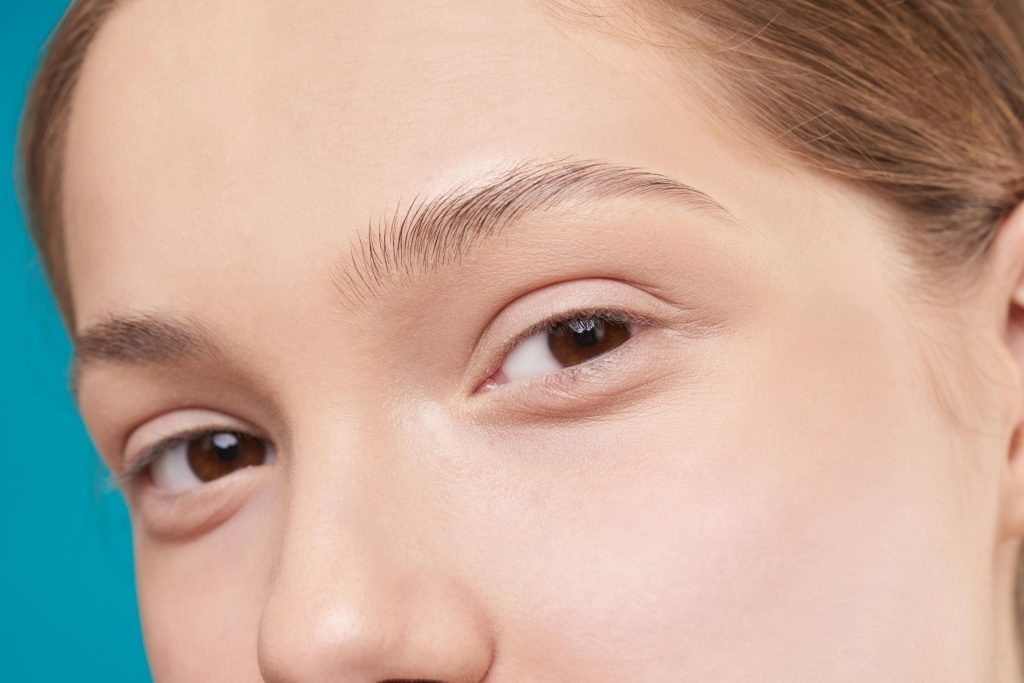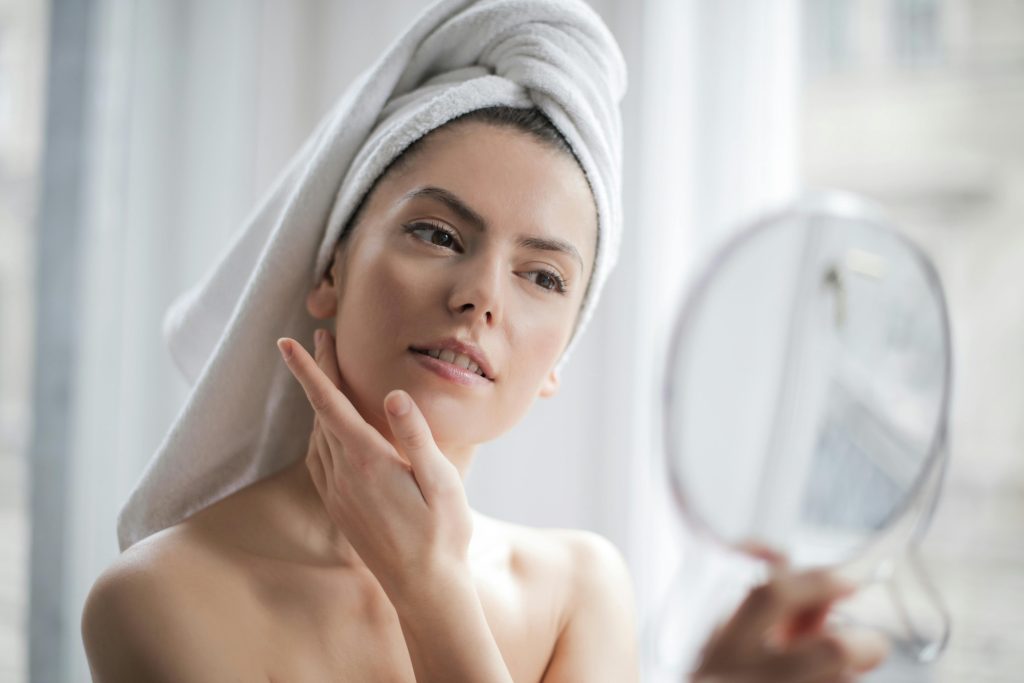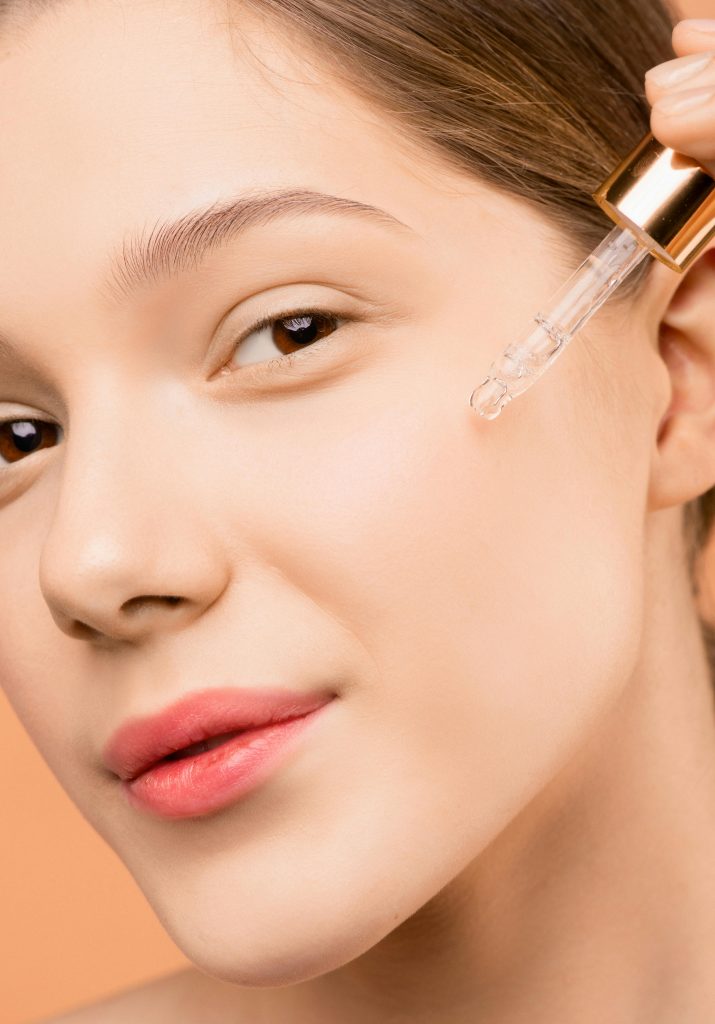Table of Contents
ToggleIntroduction to Retinoids and Retinol
Retinoids and retinol are vitamin A derivatives and are known for their ability to improve skin texture, reduce wrinkles, and stimulate collagen production. In this article, we will examine the differences between these two retinoids vs retinol powerful ingredients and decide which one is best for transforming your skin.

Learn about retinoids and retinol:
Retinoids and retinol are two forms of vitamin A known for their unique benefits. It supports skin regeneration, reduces the appearance of wrinkles and improves overall skin texture and Skin Transformation. However, it is worth noting that there are important differences between the two options.
Retinoids:
Retinoids are powerful chemical compounds that are effective in treating many skin problems, including acne and fine lines. , wrinkles and hyperpigmentation. They work by increasing cell turnover, stimulating collagen production, and promoting smoother, and clear skincare. Retinoid vs retinol have some differences in skin care.
Retinol:
Retinol, on the other hand, is a small form of Vitamin A and can be purchased without a prescription at your local store or online. Although retinol is not as powerful as retinoids, it is still effective in skin rejuvenation. It also helps stimulate collagen production, improve skin texture and reduce the appearance of fine lines and wrinkles. And retinoid vs retinol have some differences in skin care.
Differences Between Retinoids and Retinol
Retinoids are high-strength chemicals that are effective in treating many skin types. Problems such as acne, wrinkles and hyperpigmentation. Retinol, on the other hand, is available over-the-counter and is weak but still effective in improving skin texture and tone. Retinoid vs retinol have some differences in skin care.
Benefits of Retinoids in Skin Rejuvenation
Retinoids work by stimulating cell renewal, stimulating collagen production and reducing fine lines and wrinkles. They are also effective in treating acne and improving overall skin texture, making them a popular choice for people looking for skin rejuvenation.
Acne
Retinoids are effective in treating acne by opening pores, reducing inflammation and preventing the formation of new acne. They work by controlling cells and preventing the formation of comedones, which are precursors to acne lesions.
Reduces Wrinkles
Retinoids help reduce fine lines and wrinkles by stimulating collagen production in the skin. Retinoids can smooth wrinkles and improve overall skin texture by increasing skin thickness and elasticity.
Improves skin texture
Retinoids encourage the removal of dead skin cells and the growth of new, healthy cells. This peel helps improve the texture of the skin, leaving it looking smoother, softer and brighter.
Evening skin tone
Retinoids can help reduce skin pigmentation, depigmentation and other discolorations by inhibiting melanin production and promoting cell renewal. At the same time, these skin services can also help the skin look more beautiful and brighter. At the same time, these skin services can also help the skin look more beautiful and brighter.
Treats Sun Damage
Retinoids have been shown to reverse some of the signs of sun damage, including fine lines, wrinkles, and hyperpigmentation. By promoting collagen production and repairing DNA damage, retinoids can help to repair and rejuvenate sun-damaged skin. Retinoid vs retinol have some differences in skin care.
Prevents Premature Aging
Retinoids are powerful anti-aging agents that can help to prevent premature aging by stimulating collagen production and promoting cell turnover. By improving skin elasticity and firmness, retinoids can reduce the appearance of fine lines, wrinkles, and other signs of aging.
Boosts Collagen Production
Retinoids increase the production of collagen, a protein that helps to support the structure of the skin and keep it firm and elastic. By boosting collagen levels, retinoids can help to improve skin firmness and reduce sagging.
Minimizes Pore Size
Retinoids can help to shrink enlarged pores by removing dead skin cells and reducing oil production. This can result in smoother, more refined skin texture and a reduction in the appearance of pore size.
Enhances Product Absorption
Retinoids can increase the penetration of other skincare products, allowing them to work more effectively. By removing dead skin cells and promoting cell turnover, retinoids create a clearer, more receptive surface that allows other active ingredients to penetrate deeper into the skin.
Incorporating retinoids into your skincare routine can lead to significant improvements in skin tone, texture, and overall appearance. However, it’s essential to start slowly and gradually increase usage to minimize the risk of irritation. Always use sunscreen during the day when using retinoids, as they can increase the skin’s sensitivity to the sun.

Benefits of Retinol for Skin Transformation
Retinol, while less potent than retinoids, still offers several benefits for skin transformation. It helps to stimulate collagen production, improve skin texture, and reduce the appearance of fine lines and wrinkles over time. Additionally, retinol is gentler on the skin and is suitable for those with sensitive skin or beginners new to vitamin A derivatives. Retinoid vs retinol have some differences in skin care.
Gentle Exfoliation
Retinol gently exfoliates the skin, helping to remove dead skin cells and promote cell turnover for a smoother, more even skin tone. This process can also help to unclog pores, reducing the likelihood of acne breakouts and promoting clearer skin
Reduces Hyperpigmentation
Retinol is effective at reducing the appearance of hyperpigmentation, including dark spots, sun spots, and age spots. By inhibiting melanin production and promoting skin cell turnover, retinol can help to fade discoloration and create a more even complexion.
Improves Elasticity
Over time, retinol stimulates collagen production in the skin, which helps to improve elasticity and firmness. This can result in smoother, tighter skin and a reduction in the appearance of fine lines and wrinkles.
Enhances Skin Texture
By promoting cell turnover and exfoliation, retinol can help to improve the overall texture of the skin. It can smooth rough patches, minimize the appearance of pores, and leave the skin looking soft, supple, and radiant.
Prevents Premature Aging
Retinol is known for its anti-aging properties, helping to prevent premature aging by reducing the appearance of fine lines, wrinkles, and other signs of aging. By stimulating collagen production and promoting skin renewal, retinol can help to maintain a youthful complexion for longer.
Boosts Hydration
Some retinol formulations contain hydrating ingredients that help to lock in moisture and prevent dryness and irritation. This can be particularly beneficial for those with dry or sensitive skin, as it helps to maintain the skin’s natural moisture barrier and prevent transepidermal water loss.
Improves Acne Scarring
Retinol can also help to improve the appearance of acne scars by promoting cell turnover and collagen production. Over time, it can help to fade the redness and discoloration associated with acne scars, leaving the skin looking smoother and more even-toned.
Enhances Product Penetration
Retinol can increase the efficacy of other skincare products by enhancing their penetration into the skin. By removing dead skin cells and promoting cell turnover, retinol helps to create a clean, clear canvas that allows other active ingredients to penetrate more deeply and work more effectively.
Incorporating retinol into your skincare routine can lead to significant improvements in skin texture, tone, and overall appearance. However, it’s essential to start slowly and gradually increase usage to minimize the risk of irritation, especially for those with sensitive skin. Always use sunscreen during the day when using retinol, as it can increase the skin’s sensitivity to the sun. Retinoid vs retinol have some differences in skin care.
Which One to Choose: Retinoid vs Retinol?
Choosing between retinoid and retinol depends on several factors, including your skincare goals, skin type, and tolerance level. Here’s a breakdown to help you make an informed decision:
Skincare Goals: If you have specific skincare concerns such as severe acne, deep wrinkles, or stubborn hyperpigmentation, a retinoid may be the better choice. Retinoids are prescription-strength and more potent, making them more effective at targeting advanced skincare issues.
If you’re primarily focused on preventing premature aging, improving skin texture, and maintaining overall skin health, retinol may be sufficient. While less potent than retinoids, retinol still offers significant anti-aging benefits and can help to improve the appearance of fine lines, wrinkles, and uneven skin tone.
Skin Type: Retinoids can be more irritating to the skin, especially for those with sensitive or dry skin. If you have a history of sensitivity or are new to vitamin A derivatives, starting with a lower concentration of retinol may be a gentler option.
Retinol is generally considered to be milder and more tolerable for most skin types, including sensitive skin. However, individuals with extremely sensitive skin may still experience irritation, so it’s essential to patch-test and introduce retinol slowly into your skincare routine.
Tolerance Level: If you have never used a vitamin A derivative before, it’s essential to start slowly and gradually increase usage to allow your skin to acclimate. This is especially true for retinoids, which can cause significant irritation if used too frequently or at high concentrations.
Retinol is often recommended for beginners or those with sensitive skin due to its lower potency and decreased risk of irritation. Retinoid vs retinol have some differences in skin care. Starting with a low-concentration retinol product and gradually increasing frequency and strength as tolerated can help minimize adverse reactions.
Consultation with a Dermatologist
If you’re unsure which option is best for your skin or have specific concerns, it’s always a good idea to consult with a dermatologist. A dermatologist can assess your skin type, address any underlying issues, and recommend a personalized skincare regimen tailored to your needs. Because retinoid vs retinol have some differences in skin care.
A dermatologist can also prescribe prescription-strength retinoids if necessary, providing access to more potent formulations that may be required for certain skincare concerns.
In conclusion, the choice between retinoid and retinol depends on your individual skincare goals, skin type, and tolerance level. Both retinoid and retinol offer significant benefits for skin transformation, but it’s essential to consider factors such as potency, tolerance, and skincare concerns when making your decision. Because retinoid vs retinol have some differences in skin care.
Consulting with a dermatologist can help ensure that you choose the right option for your skin and achieve the best possible results.

Conclusion
The choice between retinoid and retinol ultimately depends on your skin concerns, tolerance, and budget. If you have severe skin issues like acne or deep wrinkles, a retinoid prescribed by a dermatologist may be the best option. Because retinoid vs retinol have some differences in skin care. However, if you’re looking for general anti-aging benefits or have sensitive skin, retinol may be a suitable alternative.
In conclusion, both retinoid and retinol offer significant benefits for skin transformation, including improved texture, reduced wrinkles, and enhanced collagen production. Because retinoid vs retinol have some differences in skin care. By understanding the differences between these two ingredients and considering your specific skincare needs, you can choose the right option to achieve radiant, youthful-looking skin. Always consult with a dermatologist before incorporating new skincare products into your routine.



